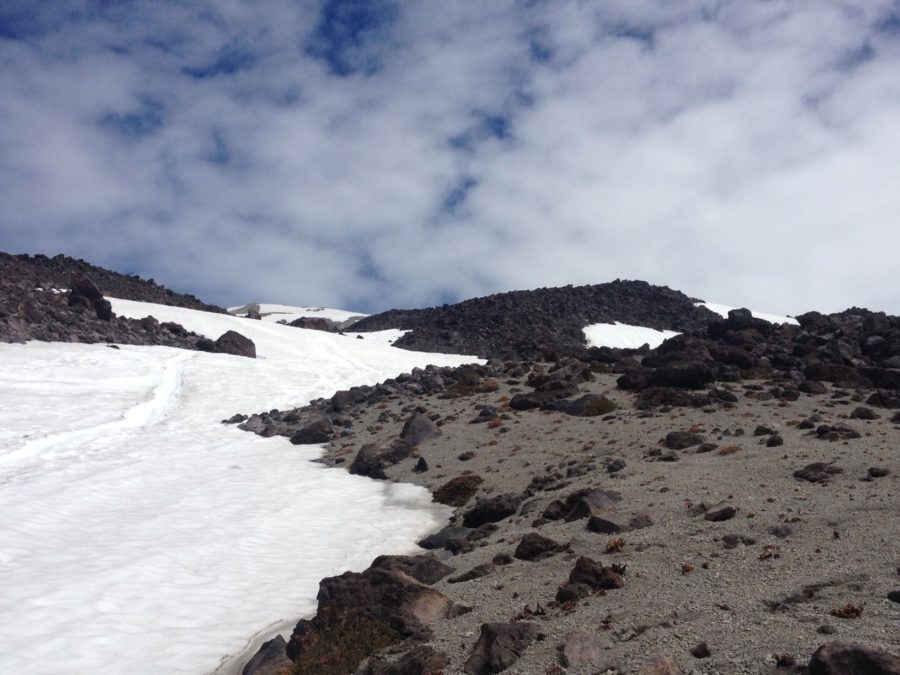Parkland College Planetarium brings an array of programs to community
February 5, 2015
Parkland College’s William M. Staerkel Planetarium is perhaps best known for its shows on the skies and solar system. But on Friday, it will display Parkland instructor Julie Angel’s recent ascent up Mount St. Helens, one of the mightiest and most explosive volcanoes in the United States.
Angel will be presenting on her own expertise as the college’s earth science coordinator through the monthly World of Science lecture series. Running from October to April, the series features a different lecturer at 7 p.m. every first Friday of the month. Angel’s successful climb from last July will be the focal point of the lecture, titled “Conquering Mt. St. Helens,” to explore geology.
“The talk will be a combination of looking at the science of volcanoes and then sharing my personal experiences with this adventure and the things that I learned along the way,” Angel said. “I’ll share with the audience some of the joys and some of the trials and tribulations of that climb.”
For Angel, scaling Mount St. Helens was a 10-mile round-trip adventure, which began at 6 a.m. at an elevation of about 3,000 feet. Angel and her group were on the volcano for about 10 and a half hours.
“It was an environment that I had never experienced before; it was very rugged,” she said. “For someone who lives here on the plains of Illinois at 700 foot elevation, it’s quite a challenge to get acclimated to that change in those conditions.”
Get The Daily Illini in your inbox!
Angel said she couldn’t pass up the opportunity to walk on an active volcano because she’s always been an adventurer at heart and has always been up for a challenge. Also, the experience was quite useful for someone who teaches on the topic of volcanoes.
“It helps as a professor of earth science to be able to go to learn about the things that you teach your students in class, to be able to bring back real-world stories and pictures,” Angel said. “It really enriches their learning immensely.”
Georgia Miller, sophomore at Parkland and student in Angel’s introductory geology class, said Angel’s class and her enthusiasm about geology inspired her to make the decision to change majors from applied sciences to geology in the near future.
“(Angel) is very involved in her class,” Miller said. “She gets really excited about things, and she wants everyone else to be excited about it, too. So she finds fun ways to get us interested in the subject.”
David Leake is director of the Parkland Planetarium and is in charge of booking speakers for the World of Science lecture series. He said the goal of the series, and the planetarium itself, is to provide educational and entertaining programming for the community.
“Obviously with the University here, there’s a lot of expertise in this community, but does the public have access to that?” he said. “We sort of consider that part of our mission: to act as a conduit between the scientific community and the general public. Even though the planetarium is really known for astronomy and putting the stars up there, we like to be known as a science education facility.”
Admission to any of the World of Science lectures is $1 per person.
Following the lecture is a planetarium show called “Super Volcanoes” about volcanic activity on and off the planet, which begins at 8 p.m. and lasts for about 45 minutes. It is a full-dome show, meaning it is presented on a hemispheric dome that surrounds the audience. Tickets for the shows are $5 for adults and $4 for students, seniors and kids.
“I would highly recommend the Super Volcanoes show,” Angel said. “It is very well-produced. I think it would be exciting for people of all ages. It gives us a good idea of the fact that our Earth is not a static ball rotating around the sun. It is very active and very violent at times.”
Abrar can be reached at [email protected].







